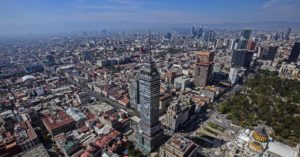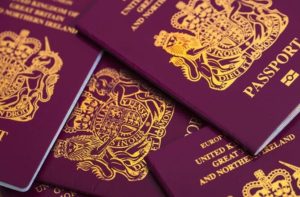Wed 21.11.12:
So then, Zambia, my third country in three days. Zambia has always been Zimbabwe’s poorer neighbour, even back in the day when it was Northern Rhodesia, it was always neglected by its (actually not very) benevolent overlords. The general indifference towards Zambia continued into independence, but in the past few years, things have started to pick up. After being freed from the burden of billions of dollars of debt in 2005 as a result of the successful ‘Drop The Debt’ campaign, Zambia has been finding its feet. Transport infrastructure has improved, as have literacy levels and a lot of work has been done on AIDS awareness. It never suffered the rollercoaster riches and rags story of Zimbabwe, so in the long-run, it seems as though the tortoise might just beat the hare. But there’s still a long way to go.
As we approached the border we passed maybe 100 container trucks all lined up waiting to get into Zambia. If that sounds like a lot, it isn’t. This is the problem with being a landlocked country. You can shift 100 containers on a small cargo ship. The Maersk Seberok could shift 6,500 containers all in one go. Zambia has a rail line linking it with the port of Dar es Salaam in Tanzania, but trains run nowhere near as often as they should. I believe the Zambian president has just nationalised the railway in response to widespread corruption with the service. But this is the problem, isn’t it? Landlocked countries are completely at the mercy of their neighbours. If Zimbabwe is being run by a madman and Mozambique is at war, how the hell are you supposed to grow your economy when you can only get 1% of the goods in and out compared to your wealthier (and less coastally-challenged) neighbours?
Pretty much all of African’s landlocked countries – Lesotho, Swaziland, Zimbabwe, Botswana, Zambia, Malawi, Burundi, Rwanda, Uganda, South Sudan, Ethiopia, Central African Republic, Chad, Niger, Burkina Faso and Mali – suffer from this dilemma. It’s quite telling that in the whole of the Americas there are just two landlocked countries (and Bolivia only lost its access to the sea after a disastrous war against Peru). It’s almost as if, given the choice, countries wouldn’t opt to be landlocked. But then when your borders are being drawn up over a European conference table in 1885, I guess you don’t get much choice in the matter.
We were supposed to reach Lusaka at 1200, but because of the breakdown north of Johannesburg yesterday we didn’t get in until 1400. This was most disappointing since it meant that my high hopes of reaching Dar es Salaam in Tanzania at some reasonable time would not come true. The direct buses all left at 1300. So I waved goodbye to bus buddies Abu, Mustapha and Thomas the German Guy and set off to find something with wheels that could at least take me to the northern border.
It wasn’t long before I was shepherded over to the ZAMBIA-TANZANIA BUS. Sadly, it was full, but it seemed that there were enough people to justify putting on another bus. Well, a minibus. Crammed in LIKE YOU WOULD NOT BELIEVE, we set off north towards the border town of Tunduma, a good 17 hours away. And OH YES IT BROKE DOWN! Three out of three! Overheated, steam everywhere (and that bizarre fishy smell you get from hot bicycle pumps – you know the one I mean). Maybe, and I’m just putting this out there, they should – I dunno – turn the engine OFF when they’re waiting two hours for passengers, waiting in a traffic jam, filling the minibus with petrol…
The guy in front of me, a South African called Peter, was hilarious, cursing the bus driver and conductor for all sorts “where do you think you’re putting that tyre? Are you crazy?” He kept the journey fun. Sitting next to me was a sweet Zambian kid called William. We chatted about (what else) African politics and came to the conclusion that *it’s all the UN’s fault*. Because it is.





So, three years later, and it’s like you never left, eh?